Thank you for following us and taking actions on human rights’ issues this past year. This month we bring you news from Paraguay, Colombia, Venezuela, Brazil and Chile. We have a new Urgent Action to free a prisoner of conscience in Venezuela, a petition to sign on sexual violence against children and adolescents in Paraguay and good news from Brazil. We report on the continued violence in Colombia and further criticism from international agencies on police repression of the National Strike. There is good news for indigenous communities in Paraguay while in Colombia the IACHR finds them at great risk.
PARAGUAY
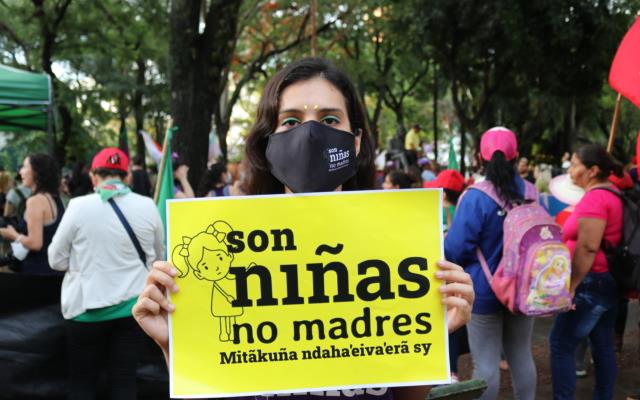 On 1 December, Amnesty published a new report about sexual violence against children and adolescents in Paraguay. For girls, this often results in forced pregnancies, truncated childhoods and abandonment of their future ambitions. Here are eight facts to underline the seriousness of the issue. According to the findings, the highest authorities in Paraguay are not listening to professionals working on the issue. You can support the accompanying campaign by signing this petition and by posting on social media using the material available here.
On 1 December, Amnesty published a new report about sexual violence against children and adolescents in Paraguay. For girls, this often results in forced pregnancies, truncated childhoods and abandonment of their future ambitions. Here are eight facts to underline the seriousness of the issue. According to the findings, the highest authorities in Paraguay are not listening to professionals working on the issue. You can support the accompanying campaign by signing this petition and by posting on social media using the material available here.
According to this news report of 28 December, the Paraguayan Government has granted land titles and financial compensation to several indigenous groups who have lost possession of their ancestral lands. This includes the Yakye Axa and the Sawhoyamaxa, for whose rights many of you have campaigned in the past. We will report further as more information becomes available.
COLOMBIA
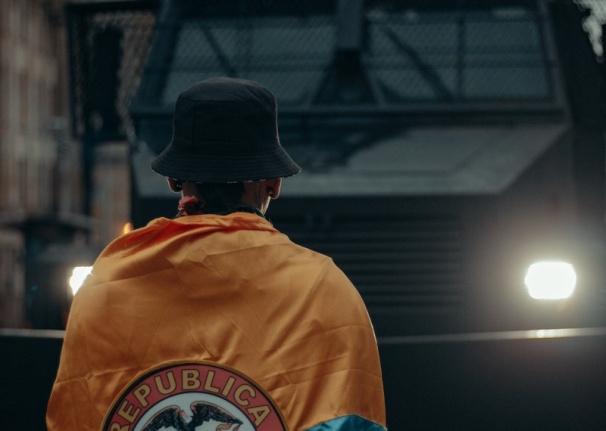 Colombia Reports that a New Year’s battle between the ELN (National Liberation Army) and FARC (Revolutionary Armed Forces of Colombia) has left at least seventeen dead on the border with Venezuela in Aruca department. First reports include civilian deaths and that 2,000 people are at risk of forced displacement. Lucrative drug trafficking is rife in this area.
Colombia Reports that a New Year’s battle between the ELN (National Liberation Army) and FARC (Revolutionary Armed Forces of Colombia) has left at least seventeen dead on the border with Venezuela in Aruca department. First reports include civilian deaths and that 2,000 people are at risk of forced displacement. Lucrative drug trafficking is rife in this area.
The Peace Community of San José de Apartadó laments the killing by ex-paramilitaries of Huber Velásquez, leader of a neighbouring community, on 17 December. Shortly prior to his death, Huber denounced corruption in the Urabá region, where the Peace Community is located.
Following a year’s study, the Inter-American Commission on Human Rights has found that indigenous communities continue to be at risk from armed groups and urges the State to take urgent actions to ensure the survival of these communities. These armed groups fight over the cultivation of illicit crops and trafficking of drugs, arms and people as well as deforestation and illicit mining. Increasingly, indigenous groups are subject to killings, massacres, death threats and harassment. These are risks that Joel Chipiaje and the ASEINPOME community, on whose behalf some Groups are working, face.
The UN’s Office of Human Rights has issued a report criticising the government’s use of force to suppress demonstrators during last Spring’s National Strike. They found that the police were responsible for at least 28 of the 46 deaths of civilians. The report documents various instances of unnecessary or disproportionate use of force by police officers, especially ESMAD (Anti-Riot Police) members, to disperse peaceful protests and blockades. It also includes 60 reported cases of sexual violence allegedly committed by the police, of which the Office has so far been able to verify 16.
The feminist NGO Casa de Mujeres has issued a report highlighting women’s role for the Truth Commission, which is overseeing parts of the 2016 Peace Accord. TruthIs: Politicizing Women’s Pain and Emotions takes on the patriarchal society – no women took part in the peace negotiations – and focuses on how women were affected by the war both as victims and participants; 40% of the FARC were women according to the report.
BRAZIL
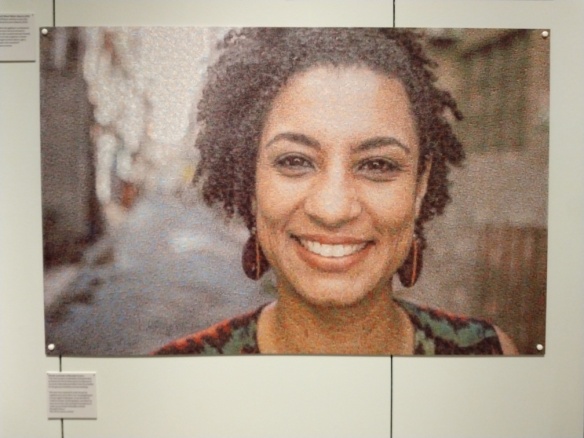
The Southampton Group has created a photo montage of Marielle Franco, a human rights defender and councilwoman assassinated in March 2018 in Rio de Janeiro, and used it for two exhibitions to publicise her killing.
Good news! Following a recent Amnesty Urgent Action, the Attorney General delivered to the Supreme Court a set of requests demanding further investigations into allegations made by the Parliamentary Inquiry Commission on the mishandling of the Covid-19 pandemic. On 3 December, a Supreme Court minister ordered to open an investigation into President Bolsonaro’s public statements on false information related to the Covid-19 pandemic. The Attorney General’s Office informed that an investigation was already in course.
VENEZUELA
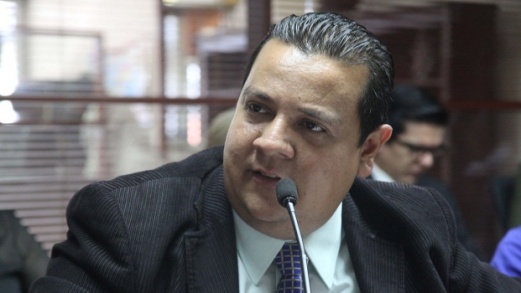
Amnesty International has issued an Urgent Action, demanding the release of Javier Tarazona, Director of local NGO FundaREDES. Javier was arbitrarily detained on 2 July 2021 after attempting to report harassment from security officers at the Attorney General’s Office in the city of Coro, and charged with inciting hatred, treason and “terrorism”. His pre-trial hearing took place on December 16. Javier Tarazona is a prisoner of conscience. Please write to Rocío Del Valle Maneiro González
Venezuelan Ambassador to the UK, 1 Cromwell Road, London SW7 2HW, ambassador@venezlon.co.uk You can download and personalise this Sample Letter
CHILE
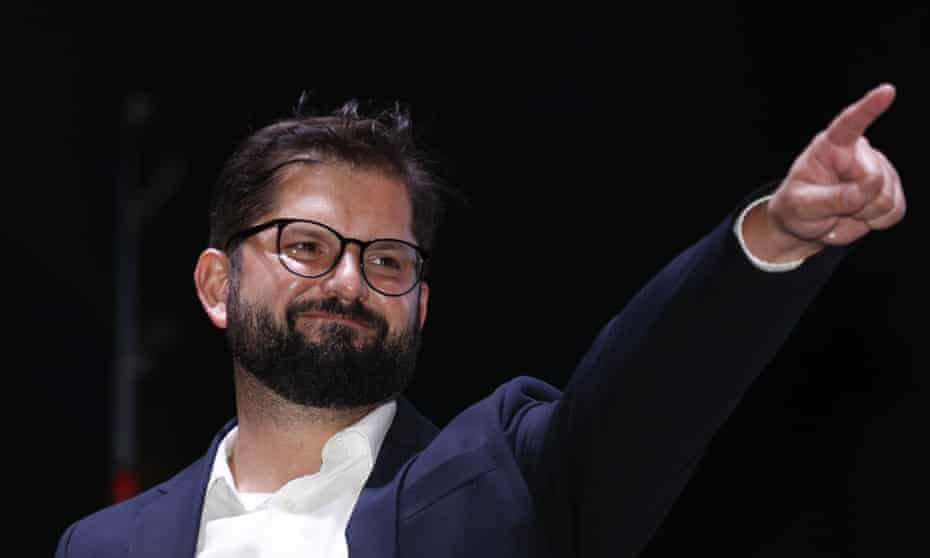
Gabriel Boric has been elected to the presidency of Chile. At 35, he is the youngest president in the history of Chile. Elected on a left-leaning programme he will oversee the rewriting of the Pinochet-era constitution. The Guardian’s opinion is titled Boric brings a fresh start.
OUR TEAM AND YOU
We wish you a happy, healthy and peaceful New Year, South America Team – Richard Crosfield (Colombia and Brazil), Carla Torres (Chile and Argentina), Javier Martinez (Venezuela) and Graham Minter (rest of South America). And please don’t forget that you can follow us on our Facebook page and Twitter.